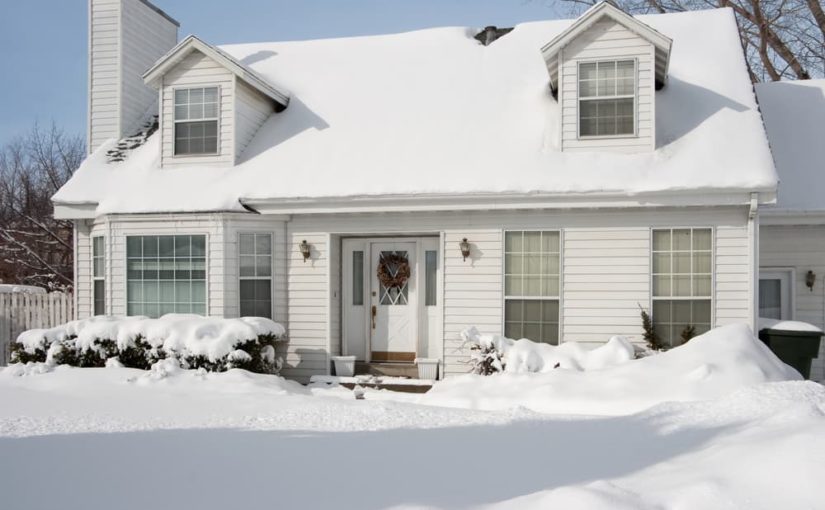
Problems that occur with the foundation of a home are mostly caused by weather — especially the harsh winter elements. The amount of moisture that’s surrounding our homes during the winter months is a lot for the soil to handle, especially for such an extended period of time. The weather also is much more unpredictable during the winter, making the foundation even more vulnerable to damage. That’s why it’s important to take some measures to ensure your home and foundation are well protected. Learn how to safeguard your foundation from the winter weather with these tips below.
Why Winter Is Most Damaging to Your Foundation
We all know that winter can bring along some pretty extreme weather conditions, especially nowadays with more unpredictability in the forecast. During these cold months, the snow, rain, and melt-off mean the foundation and soil are almost constantly soaked with moisture. And when the temperatures rise and fall, as they commonly do, the freeze-thaw-cycle forces the soil to expand, placing pressure against the foundation and even causing it to shift. Unlike the warm summer temperatures that allow moisture to evaporate away, cold temperatures trap it in the ground during winter. Frost heave can occur as a result, which is another main culprit for foundation damage. Most homeowners don’t realize just how forceful these freeze-thaw conditions can be for shifting and damaging the foundation walls and floors.
To keep your foundation as solid as possible to avoid costly repairs, here’s what to do to prepare it to withstand those winter elements:
Look for Signs of Damage Beforehand
Before the winter weather hits, it’s imperative to take a good look around your home to pinpoint any potential signs of damage, even minor issues. Specifically, keep an eye out for any wall cracks, especially if they are vertical and wide. Also, any jammed doors, moisture damage in the basement, cracks in the slabs, and buckling or uneven floors. Any of these signs should be inspected and addressed by a foundation expert.
Keep Gutters Clean & Clear
Clogged gutters from the fallen leaves can create a big problem come winter if they’re not cleaned out before the snow arrives. Debris that’s left behind creates dams within the gutters, preventing moisture from draining away from the roof, walls, and foundation. This can cause water to pool and eventually permeate into the surrounding surfaces, creating significant damage over time. Always have your gutter system cleaned out and repaired if needed before the snow and ice arrive.
Direct Downspouts Away from Home
After the gutters have been cleaned, check for any areas that look like they’re pooling water along the ground. If you notice puddles or an obvious low point in the ground near the home, make sure that the downspouts are directing water away from the house. Downspouts are meant to prevent water away from lingering close to the perimeter, so consider extending yours if it’s not diverting excess moisture from the roof far enough away.
Ensure Windows are Sealed
Windows with cracks can be an entry point for moisture to infiltrate the walls and foundation. To prevent this, winterize them by sealing up any cracks to keep the rain or snow outside.
Keep Snow Away from the Home
Whether you’re shoveling or using a snowblower, once the snow starts to accumulate, be mindful of where you’re placing that excess snow. Piling it up around or near the perimeter of the home should be avoided. Instead, try to place the snow at least a good few feet from the foundation. If you have a spot in the garden, this can be a good option since it will absorb the excess moisture during the melt-off with enough distance as to not impact your home.
Double Check any Irrigation Systems
If you have a sprinkler system or garden hose, always double-check that they are switched off well in advance of the sub-zero temperatures. Aside from the risk of the pipes freezing and bursting, frozen faucets can end up leaking if they’re left on, adding more moisture close to the foundation and making it vulnerable to damage.
The foundation is integral to the structural safety of your home and should be inspected every year before the winter arrives. Neglecting or ignoring precautionary measures can lead to major problems and costly repairs. Follow these steps to safeguard your foundation from the winter weather each year, or give our team a call to take care of it for you. GWS Masonry are the go-to foundation experts. Contact us today!